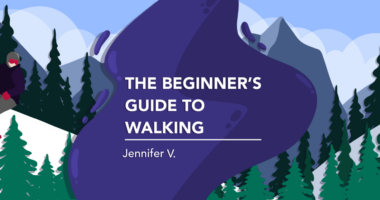Battling dental problems while grappling with my rare disease
Why NMOSD patients might have more issues with their teeth and gums

My obsession with clean teeth started long before my neuromyelitis optica spectrum disorder (NMOSD) diagnosis.
As a child, I had more than my share of visits to the dentist — enough that as an adult, I’d do anything to avoid going. Unfortunately, I had braces as a child and dental surgeries to remove baby teeth from my small jaw; plus, I was prone to cavities because I had brittle teeth.
In fact, I went to the dentist so often that I can sing all the lyrics to “Eternal Flame” by the Bangles. My dentist listened to the same radio station that played the same songs every day, and he loved that song. To this day, when I hear, “Close your eyes, give me your hand, darling,” I immediately feel anxious.
My mom used to remind me that the only way to avoid these visits is to have clean teeth, and thus began my lifetime of purchasing the best electric toothbrushes, flossing tools, gum massage tools, and Waterpik machines.
But did you know it’s possible to brush your teeth too hard and too often? I didn’t — until I damaged some enamel on my teeth. For that and other reasons, brushing, flossing, and even blasting water like you’re pressure washing the backyard deck aren’t enough to avoid multiple trips to the dentist every year if you have NMOSD.
Autoimmune diseases and dental hygiene
Most autoimmune diseases create chaos in our mouths, it turns out. Lupus can create lesions and ulcers. Hashimoto’s disease can cause an enlarged thyroid and a weakened esophagus, stopping patients from eating. Those with Crohn’s disease might deal with swelling in their mouths, especially their gums.
It isn’t widely documented that patients with NMOSD have more dental care requirements than the average person, but it stands to reason. Most of us have been on steroids that can weaken our bones (teeth included) over time.
The National Multiple Sclerosis Society has a brochure that addresses some common concerns. Many NMOSD patients deal with tremors, for example, making it difficult to brush their teeth. This brochure suggests using a weighted glove to brush, which I’d never heard of before.
Saliva also plays an important part in our healthcare. Since many medications cause dry mouth, NMOSD patients struggle with an uncomfortable chalky feeling in their mouths. The lack of saliva can create the perfect breeding ground for bacteria to form, which attack our gums and teeth. Many of us are helped by drinking more fluids, as well as chewing gum or sucking on candies or even ice cubes. There are also over-the-counter solutions like dry mouth moisturizing mouthwash, but I’m a traditionalist and still love my usual minty fresh mouthwash, so I’ve never tried any of these alternative solutions.
With my childhood anxiety, I’m probably the last person who wants to visit my dentist. However, I recognize the importance of it, especially with my NMOSD. I suggest starting with a quarterly teeth cleaning, which is also an opportunity for dental hygienists and dentists to catch any new problems, like a cavity or tooth decay. Should they find something, consider asking for nitrous oxide, or laughing gas, to help you relax during long and uncomfortable treatments. In my case, I ask for nitrous oxide for even short visits, and I always have my own playlist going in my ears.
I’ve learned my mouth deserves care. Yours does, too.
Please share in the comments below if you’ve had to invest more time in the dental chair since your NMOSD diagnosis.
Note: Neuromyelitis News is strictly a news and information website about the disease. It does not provide medical advice, diagnosis, or treatment. This content is not intended to be a substitute for professional medical advice, diagnosis, or treatment. Always seek the advice of your physician or other qualified health providers with any questions you may have regarding a medical condition. Never disregard professional medical advice or delay in seeking it because of something you have read on this website. The opinions expressed in this column are not those of Neuromyelitis News or its parent company, Bionews, and are intended to spark discussion about issues pertaining to neuromyelitis optica spectrum disorder (NMOSD).







Leave a comment
Fill in the required fields to post. Your email address will not be published.